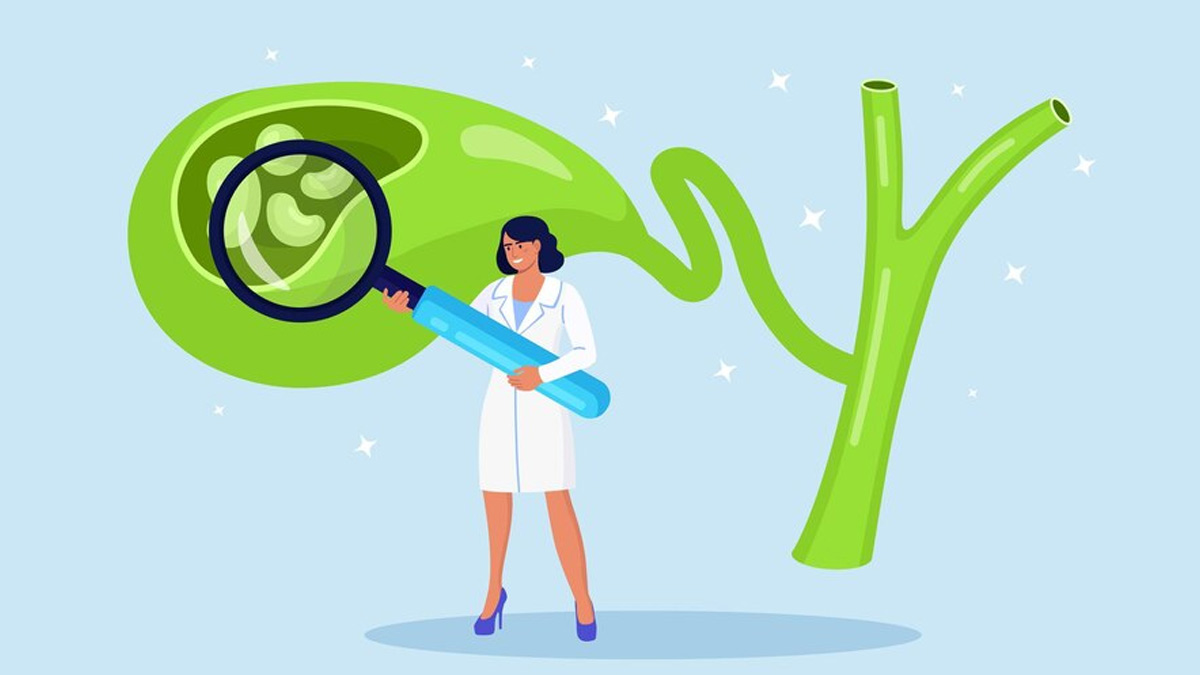
Gallbladder disease is a common condition that can have a significant impact on one's health and well-being. It is characterised by the formation of gallstones or inflammation of the gallbladder. Hence, it becomes important to understand the risk factors and symptoms associated with this disease for timely intervention and treatment. We spoke to our expert Dr Adi Rakesh Kumar, Consultant Gastroenterologist, Therapeutic Endoscopist and Endosonologist, Yashoda Hospitals, Hyderabad, who listed the risk factors and symptoms of gallbladder disease and how to manage it.
Table of Content:-
Risk Factors For Gallbladder Issues

Several factors increase the likelihood of developing gallbladder disease. Dr Kumar listed some of them as follows:
- Age: Gallbladder issues are more common in individuals over 40.
- Gender: Women, especially those who have experienced multiple pregnancies or are using hormonal contraceptives, are at a higher risk. According to a 2012 study, female sex hormones play a pivotal role in the underlying mechanism; factors, such as parity, oral contraceptive use, and oestrogen replacement therapy are well-established as contributing risks for the formation of cholesterol gallstones.
- Obesity: Excess body weight can lead to increased cholesterol production, contributing to gallstone formation.
- Diet: A diet high in refined carbohydrates and saturated fats can increase the risk of gallstones.
- Rapid Weight Loss: Crash diets or bariatric surgery-associated rapid weight loss can disrupt bile substance balance, promoting stone formation.
- Diabetes and Dyslipidemia: These conditions increase the risk of gallbladder stone formation.
According to a 2023 study, gallstone disease poses a significant global health challenge, with a prevalence ranging from 2-20% worldwide. Alongside genetic predisposition, various pathogenic factors contribute to GSD, such as heightened biliary mucin secretion, excessive hepatic cholesterol secretion, formation of supersaturated bile, accelerated cholesterol crystallisation, and gallbladder stasis.
Also Read: Life Without A Gallbladder: Expert Lists Foods To Avoid for Optimal Digestive Health
Symptoms Of Gallbladder Disease

The symptoms of gallbladder disease can vary depending on the specific condition and its severity. Here are some of the symptoms, as listed by the expert:
- Abdominal pain, especially after meals
- Discomfort in the upper right abdomen
- Nausea, vomiting, and bloating
- Severe pain if gallstones block the bile duct, leading to potential complications like inflammation or infection
Alsoo Read: Ever Heard Of Gallbladder Attack? Know Its Causes And Tips To Maintain Gallbladder Health
Management Tips For Gallbladder Disease

Effective management of gallbladder disease involves lifestyle modifications and, in some cases, medical or surgical intervention. Here are some tips shared by Dr Kumar for managing and preventing gallbladder disease:
- Maintaining a healthy weight through a proper diet and regular exercise is crucial for reducing the risk of gallstones.
- Increasing fibre intake can aid in weight management and support digestive health.
- Avoiding rapid weight loss and adopting a gradual approach to weight management is essential for preventing gallbladder complications.
"For those experiencing symptoms, medical consultation is vital. Diagnosis often involves imaging tests like ultrasound, which can detect gallstones and assess the gallbladder's overall health. In cases where gallstones cause persistent issues, Endoscopic interventions and surgical removal of the gallbladder, known as cholecystectomy, may be recommended", added Dr Kumar.
Bottomline
Dr Kumar concluded, “Understanding the risk factors, symptoms, and management strategies for gallbladder disease is crucial for maintaining overall health. Lifestyle choices, including a balanced diet, regular exercise, and proper hydration, play a pivotal role in preventing gallstone formation. Early detection and medical intervention are essential for effectively managing gallbladder disease, ensuring a better quality of life for those at risk or already experiencing symptoms.”
[Disclaimer: This article contains information provided by an expert and is for informational purposes only. Hence, we advise you to consult your expert if you face any health issues for necessary diagnosis and treatment.]
Also watch this video
How we keep this article up to date:
We work with experts and keep a close eye on the latest in health and wellness. Whenever there is a new research or helpful information, we update our articles with accurate and useful advice.
Current Version